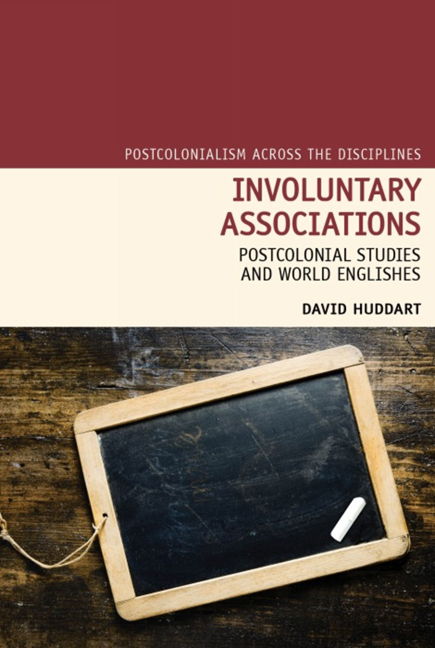Book contents
- Frontmatter
- Dedication
- Acknowledgements
- Contents
- Introduction
- 1 Involuntary Associations: ‘Postcolonial Studies’ and ‘World Englishes’
- 2 Grammars of Living Break their Tense: World Englishes and Cultural Translation
- 3 English in the Conversation of Mankind: World Englishes and Global Citizenship
- 4 Declarations of Linguistic Independence: The Postcolonial Dictionary
- 5 Writing after the End of Empire: Composition, Community, and Creativity
- 6 Slow Reading: The Opacity of World Literatures
- Conclusion: English Remains, Englishes Remain
- Bibliography
- Index
Conclusion: English Remains, Englishes Remain
- Frontmatter
- Dedication
- Acknowledgements
- Contents
- Introduction
- 1 Involuntary Associations: ‘Postcolonial Studies’ and ‘World Englishes’
- 2 Grammars of Living Break their Tense: World Englishes and Cultural Translation
- 3 English in the Conversation of Mankind: World Englishes and Global Citizenship
- 4 Declarations of Linguistic Independence: The Postcolonial Dictionary
- 5 Writing after the End of Empire: Composition, Community, and Creativity
- 6 Slow Reading: The Opacity of World Literatures
- Conclusion: English Remains, Englishes Remain
- Bibliography
- Index
Summary
The tensions in the use of a universal standard are seldom clear to those in a dominant position with regard to it for they do not need to suppress local innovation in order to participate in a universal network.
David Singh Grewal, Network PowerFrom a sceptical perspective, postcolonial studies remains locked into an oppositional framework. While that framework acknowledges that postcolonialism is in many ways about what Young calls ‘unfinished business, the continuing projection of past conflicts into the experience of the present’ (2012, 21), the need for new perspectives is also frequently expressed. This book has argued that one possibility for finally breaking out of that framework is to engage with World Englishes studies. In common with other approaches to aspects of globalization, World Englishes studies assume less a centre-periphery model, however valuable such a model may still be for some contexts, and more a dynamic network. Of course, the power of a node in such a network depends not only on what it is in itself, but also on how connected it is. However, connectedness still implies the potential significance of a node's self-identity, and there will still be moments when centre and periphery are the best terms to describe what is under consideration. David Singh Grewal (2008) writes of English in terms of network power, describing the fact that people are rational agents, to some extent, but also that the context in which they make a choice may well compel that choice, leading to a widespread feeling of being coerced. The process of tacit social coordination that ‘decides’ on global standards proceeds inevitably to eliminate alternatives capable of fulfilling the same function, and this seems to be the case with English understood as a global language. But, as is clear, there are other possibilities within World Englishes; the spread of Englishes and the increased acknowledgement of linguistic hybridization work alongside the tendencies of network power that favour a standardized global English.
Keeping this balance in mind, this book has argued the following: World Englishes demand that postcolonial studies look towards a future that, whether it ‘speaks English’ or not, will need to be characterized by a different idea of communication.
- Type
- Chapter
- Information
- Involuntary AssociationsPostcolonial Studies and World Englishes, pp. 133 - 141Publisher: Liverpool University PressPrint publication year: 2014



